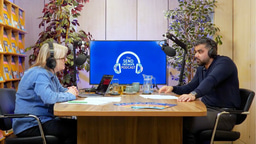“We Can’t Protect Them From Everything, But We Can Give Them The Tools”: How To Support Your Neurodivergent Child’s Return To School by Dr Shri Cameron

Dr Shri Cameron is a registered practitioner psychologist with the Health and Care Professions Council (HCPC, PYL35758) and a registered member of the Association of Clinical Psychologists (ACP-UK, 2655). She specialises in autism and ADHD assessments for young people, as well as dyslexia and cognitive assessments. Shri also provides compassionate, value-driven therapeutic interventions for young people and families experiencing a range of mental health difficulties, always taking a neuro-affirmative, strength-based approach.
All schools are different. Some schools ‘fit’ a young person’s needs better than others. Some children welcome the structure and routine that school brings, while for others it can feel restrictive and overwhelming. In all cases, the return to school can be challenging because of the additional demands it brings – demands they may not have had to manage over the summer holidays.
As a parent of a neurodivergent child, this period can feel exhausting and draining, even hopeless at times, especially when systems don’t seem to match your child’s needs. You may feel your own emotional energy running low – and chances are your child feels the same. Preparing for the return to school might feel like just another item on the endless to-do list, but taking the time to plan can make the transition smoother.
Shri explains: “For some children, school can feel like a badly fitting pair of shoes. For some that’s tolerable, but for others it’s not. Preparation is what helps them feel more confident in how to cope.”
This is also an opportunity to talk about how they can manage change, how they feel about the school environment, and how to support executive functioning as a family. There is no perfect solution – only the one that works for you. Be creative, imaginative, and connect with each other’s feelings. It is hard for everyone, and that’s okay.
- Create space for conversations
Many neurodivergent children may only start thinking about going back to school once it is mentioned to them. They may not talk about their worries, but it’s likely they are there. Try to make short bursts of time and space to talk in the weeks leading up to school. Validate your child’s worries and feelings and notice your own as well.
Practical ideas:
- Ask what might help soothe them in the run up.
- Notice how they express their worry – what do you see?
- Take a moment to notice what feelings this brings up for you too.
- Use simple, concrete language. As Shri suggests: “We’re going back to school in 14 sleeps.”
- Encourage them to rate their worries: “Is this a little, medium or big worry?”
- Practice the school routine
The change from holiday flexibility to school-day structure is a big one. Practising the routine in advance can ease the pressure. As Shri explains: “There’s the demand of waking up early, eating breakfast, brushing your teeth, getting ready – all within a strict time limit. All of this adds to stress.”
You might:
- Ease gradually into earlier mornings and consistent bedtimes.
- Discuss as a team what might work best for everyone.
- Think together about how to manage time pressures calmly.
- Use non-monetary incentives to support executive functioning.
- Break tasks into smaller parts, with pauses in between. Talk through how to take a break and then return without distress.
- Review afterwards – what worked, what was difficult?
- Practice wearing school clothes
For children with sensory needs, uniform can be uncomfortable. Shri notes: “Even if they’ve worn it before, they might not remember how it feels.”
- Try wearing school clothes in advance to notice what feels uncomfortable.
- Adapt where possible – removing labels, adjusting fastenings, or swapping fabrics within school rules.
- Practise in short bursts to make it less overwhelming.
- Prepare for the day with care
Small touches can make a big difference to how your child feels.
- Pack an extra treat or note to remind them you are thinking of them.
- Remind them who their safe people are and what they can do if they feel overwhelmed.
- Make sure sensory aids are included.
- Plan something calming for after school. As Shri puts it: “It’s going to be really hard for you and it’s going to be really hard for me, so let’s think about what we can do afterwards to replenish our energy.”
- Connect and reflect after the first day
After school, take time to talk, reflect and soothe together.
- Encourage them to share their experience, listening without rushing to problem-solve.
- Validate their feelings: “Yes, that was really challenging for you. I remember we tried X last year – did that work? What do you think might help this year?”
- Reward the bravery of facing the first day.
- Do something soothing as a family – whether that’s a shared meal, quiet time, or time outside.
How to start the conversation: what can you say?
Sometimes the hardest part is knowing how to begin. Shri suggests:
- Be curious and inquisitive: “We have two weeks left until school – have you been thinking about it?”
- Use simple quantifiers: “Have you been thinking about school a little, medium or big amount?”
- Avoid labelling or pressuring, and give them extra time to respond: “What pops into your head when you think about school?”
- Offer options if open questions are difficult: “Would X help? Or would Y help a little, medium or big amount?”
- Connect to past strengths: “I remember another time you found something really tricky but came up with such a creative idea. I wonder if we could try the same here?”
- Emphasise teamwork: “I think the first day back might feel a bit worrying. What might help us the night before and in the morning to make it calm for all of us?”
Supporting a child back into school is a joint effort. It takes patience, creativity and flexibility, but small steps make a big difference. Shri reminds us: “Parents need incentives too – what are you going to do for yourself to decompress?”
And most importantly, she says: “We can’t protect them from everything that’s difficult, but we can give them the tools to manage those situations, and show them we’ll be there alongside them.”
Dr Shri Cameron offers both assessment and therapeutic interventions for young people and families, online or in person. Her neuro-affirmative, strength-based approach focuses on helping children create a positive narrative about who they are and what they can achieve.
You can find more resources from CAYP Psychology here.





Please sign in or register for FREE
If you are a registered user on SEND Network, please sign in